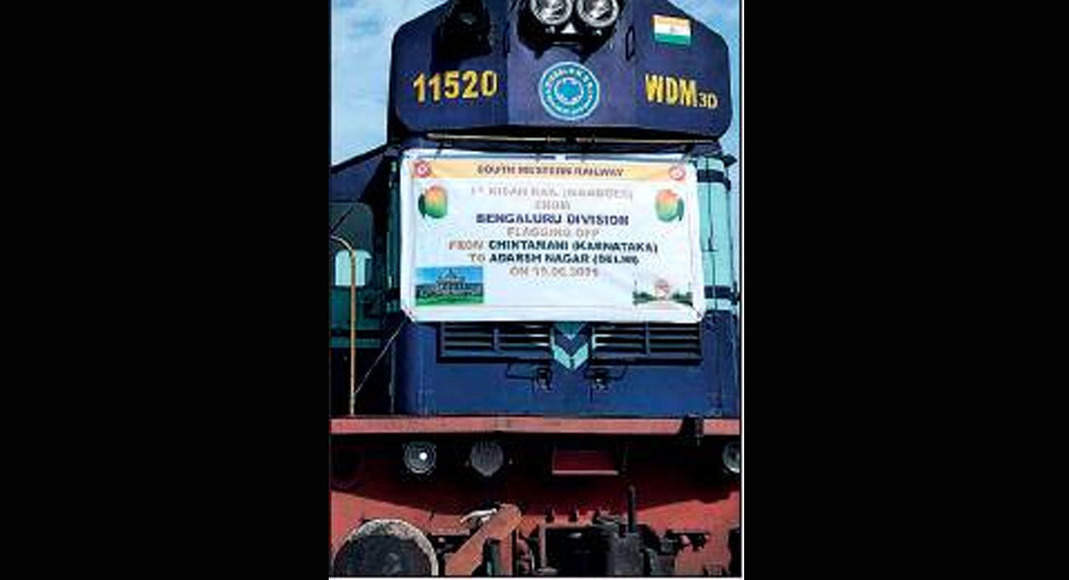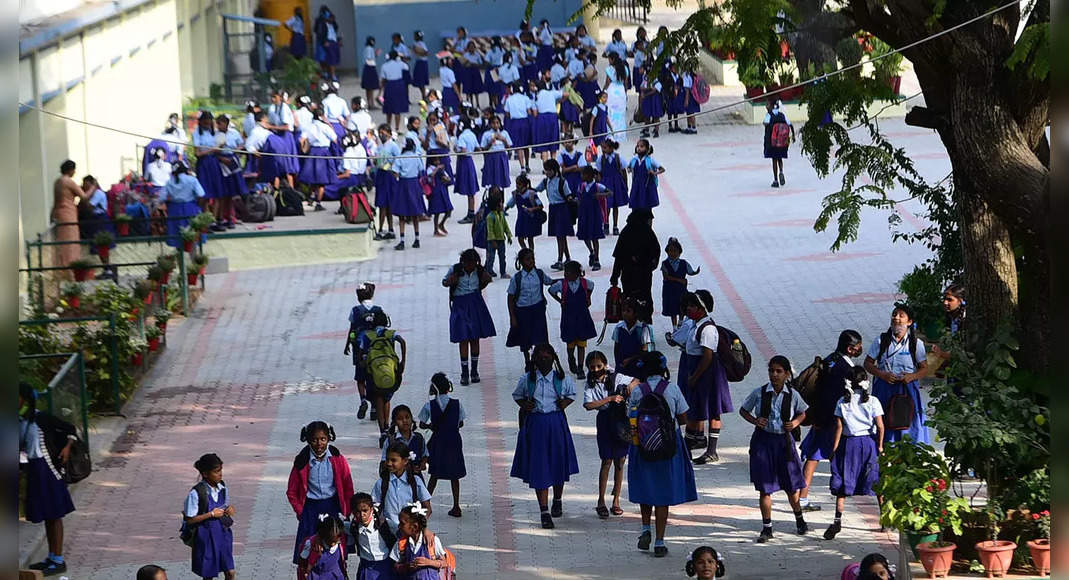KOLAR/BENGALURU: The South Western Railway (SWR) has run three Kisan Rail services to transport mangoes grown in Kolar and Chikkaballapur districts to Delhi since June 19.
This has come as a relief to farmers and traders who were struggling to send their stocks to markets because of limited or slow transport options.
Two trains ferried 250 metric tonnes (MT) of mangoes each, mostly Benisha and Bengaloora Thotapuri varieties, and the third 240MT from Chintamani in Chikkaballapur to Adarsh Nagar in Delhi.
Chintamani is close to Srinivaspur in Kolar.
Kolar MP S Muniswamy flagged off the first train.
HV Punith, a farmer in Hebbata village on Kolar-Srinivaspur Road, and his family own about 40 acres of mango groves.
“We have sent more than 120MT of mangoes in these three trains.
We booked four coaches for each trip.
Sending mangoes by train will help us save Rs 5.2 per kg,” he said.
The family has been engaged in the trade for more than two decades.
“Apart from lower transportation cost, the other advantage is that the quality of the fruit would still be good at the destination as it takes only 38 to 40 hours by train to reach Delhi.
By road, it takes around 70 hours,” Punith said.
Aneesh, the proprietor of Aneesh Fruit Centre in Srinivaspur, said that often, mangoes rotted when transported in trucks.
“This train runs up to Adarsh Nagar where there are several fruit markets,” he added.
Ashok Kumar Verma, Bengaluru divisional railway manager, SWR, also said that transporting farm produce by Kisan Rail was cheaper and faster than by road.
“The road transport cost is about Rs 7-8 per kg, whereas in Kisan Rail, it costs Rs 2.8 per kg (with 50 per cent subsidy),” he said.
“SWR plans to run at least one Kisan Rail train every two to three days and is committed to help farmers transport tomatoes, onions and other seasonal products to markets across the country based on demand.” Kisan Rail was announced in the 2020-21 Union Budget.
“The primary objective of these trains is to increase income in the farm sector by connecting production centres to markets/realisation centres across the country,” said another SWR official.
“The services are operated on time-tabled routes and their punctuality is strictly monitored.
This is beneficial when transporting farm produce.”







